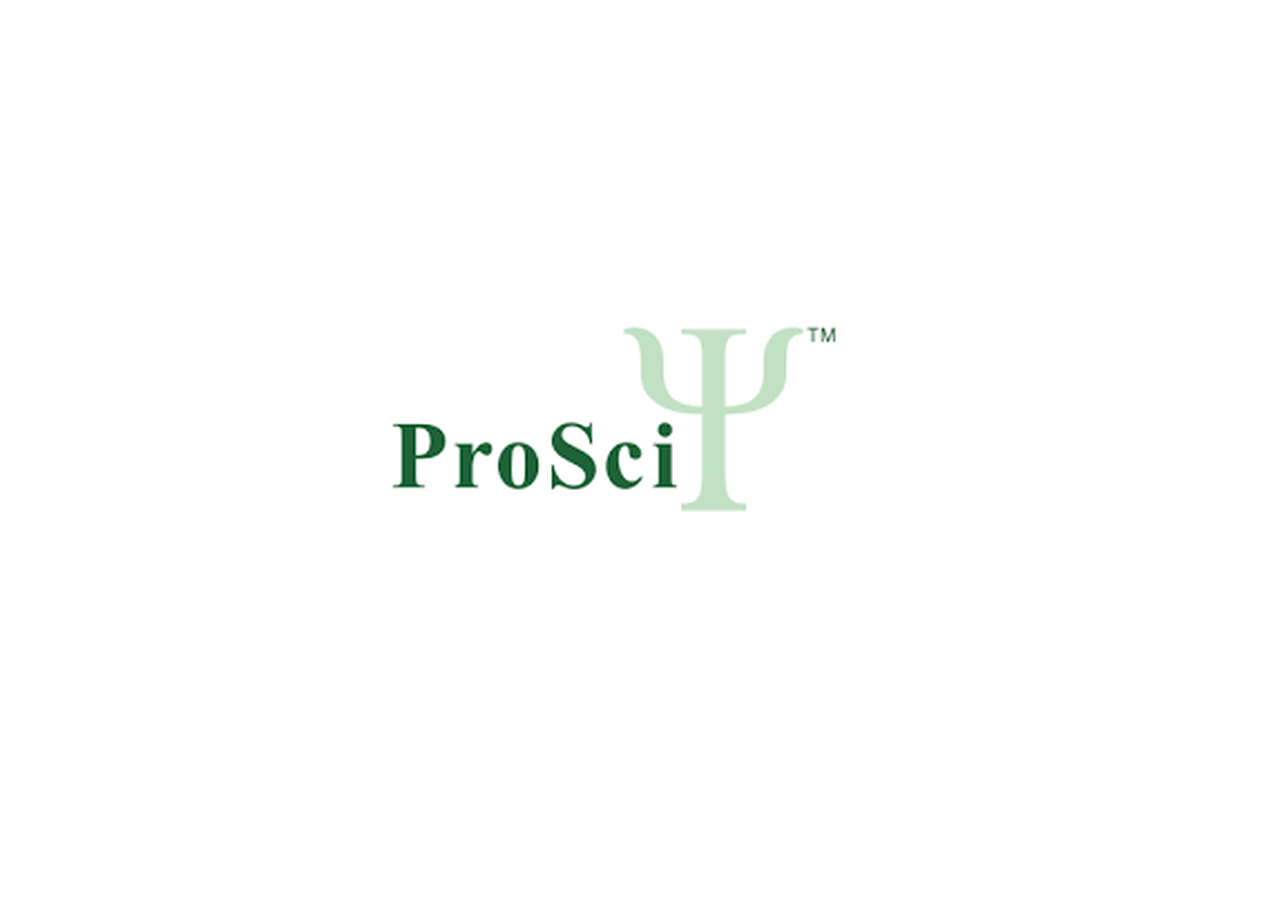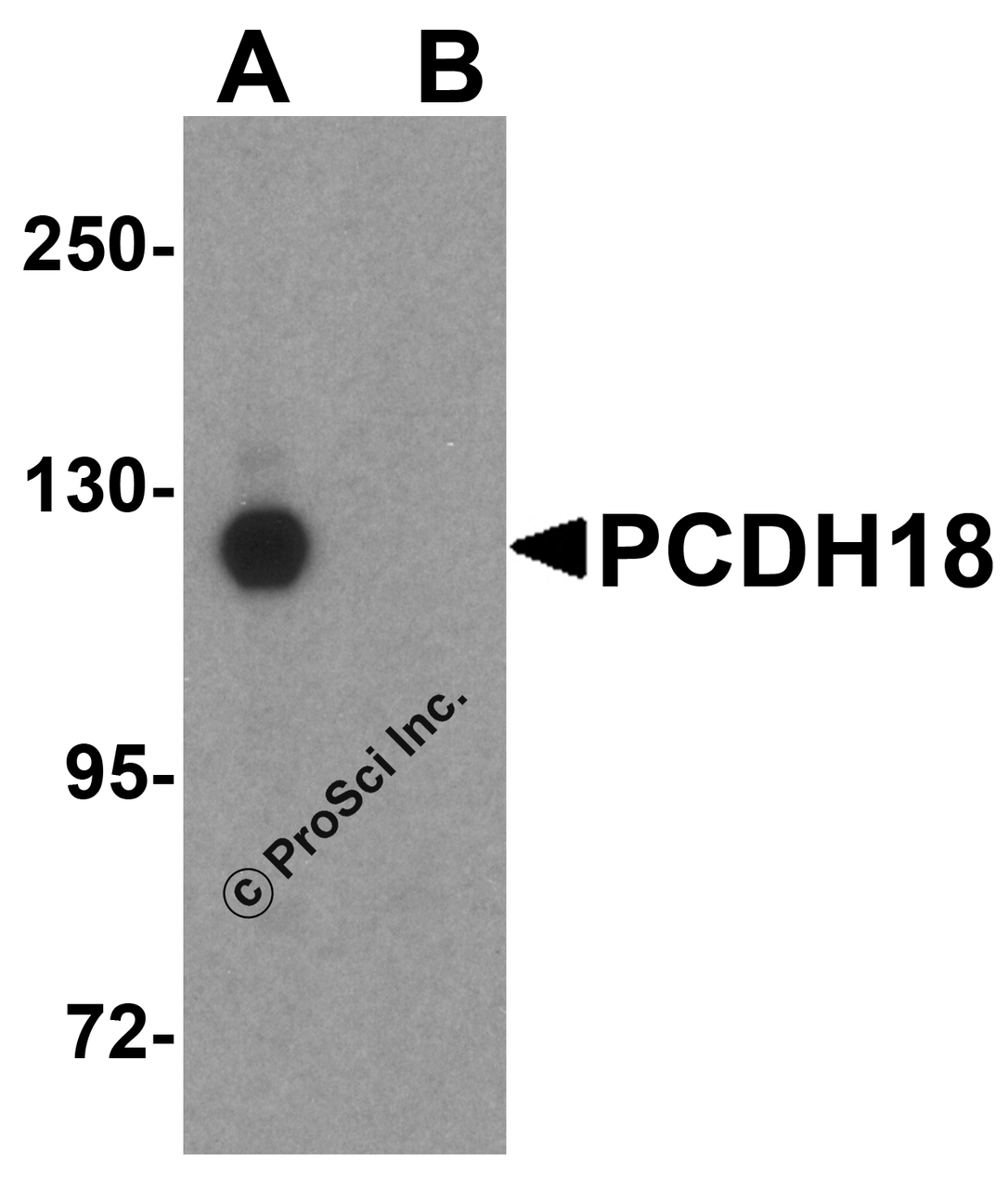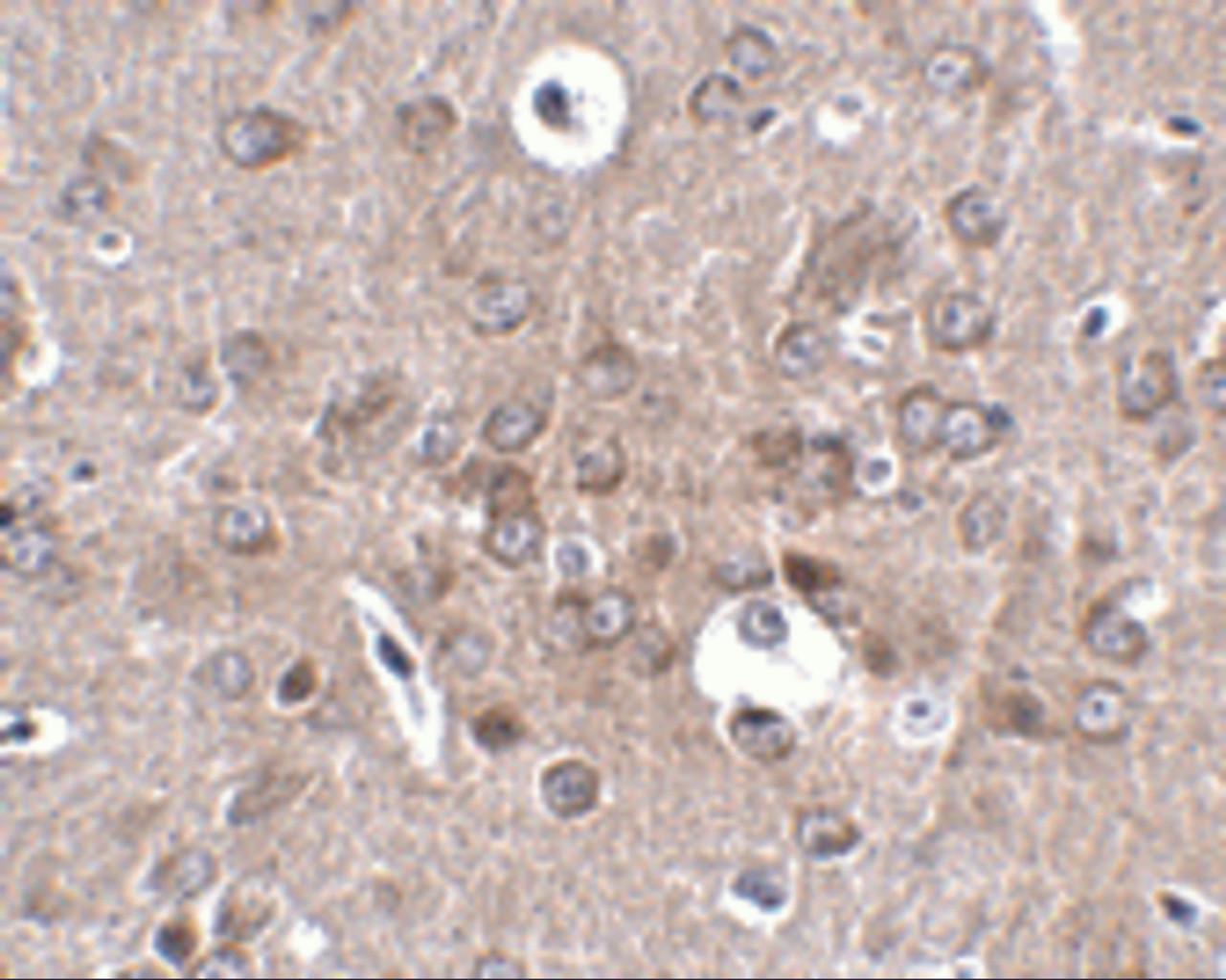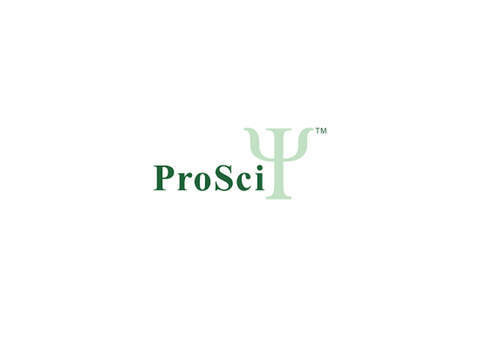Product Description
PCDH18 Antibody | 5081 | ProSci
Host: Rabbit
Reactivity: Human, Mouse, Rat
Homology: Predicted species reactivity based on immunogen sequence: Bovine: (95%)
Immunogen: PCDH18 antibody was raised against a 17 amino acid synthetic peptide near the amino terminus of human PCDH18.
The immunogen is located within amino acids 50 - 100 of PCDH18.
Research Area: Neuroscience
Tested Application: E, WB, IHC-P, IF
Application: PCDH18 antibody can be used for detection of PCDH18 by Western blot at 2 μg/mL. Antibody can also be used for immunohistochemistry starting at 2.5 μg/mL. For immunofluorescence start at 20 μg/mL.
Antibody validated: Western Blot in human samples; Immunohistochemistry in mouse samples and Immunofluorescence in mouse samples. All other applications and species not yet tested.
Specificiy: At least three isoforms of PCDH18 are known to exist. This antibody is predicted to not cross-react with PCDH12.
Positive Control 1: Cat. No. 1211 - HepG2 Cell Lysate
Positive Control 2: N/A
Positive Control 3: N/A
Positive Control 4: N/A
Positive Control 5: N/A
Positive Control 6: N/A
Molecular Weight: N/A
Validation: N/A
Isoform: N/A
Purification: PCDH18 Antibody is affinity chromatography purified via peptide column.
Clonality: Polyclonal
Clone: N/A
Isotype: IgG
Conjugate: Unconjugated
Physical State: Liquid
Buffer: PCDH18 Antibody is supplied in PBS containing 0.02% sodium azide.
Concentration: 1 mg/mL
Storage Condition: PCDH18 antibody can be stored at 4˚C for three months and -20˚C, stable for up to one year. As with all antibodies care should be taken to avoid repeated freeze thaw cycles. Antibodies should not be exposed to prolonged high temperatures.
Alternate Name: PCDH18 Antibody: PCDH68L, KIAA1562, Protocadherin-18
User Note: Optimal dilutions for each application to be determined by the researcher.
BACKGROUND: PCDH18 Antibody: Protocadherins comprise the largest group within the cadherin family of calcium-dependent cell-cell adhesion molecules. Protocadherin 18 (PCDH18) was initially identified through screening of human and mouse ESTs using conserved cytoplasmic domain motifs. Tissue screening revealed PCDH18 broad expression in tissues such as brain, liver, heart, kidney, lung, and trachea. PCDH18 expression is also temporally and spatially regulated in the mouse embryonic brain and interacts with Disabled-1, an intracellular adapter protein involved in neuronal migration and cell positioning during mammalian brain development. PCDH18 was also found to be expressed in the developing zebrafish neural tube and central nervous system, lending support to the hypothesis that PCDH18 may play a role during brain development.
 Euro
Euro
 USD
USD
 British Pound
British Pound
 NULL
NULL
















